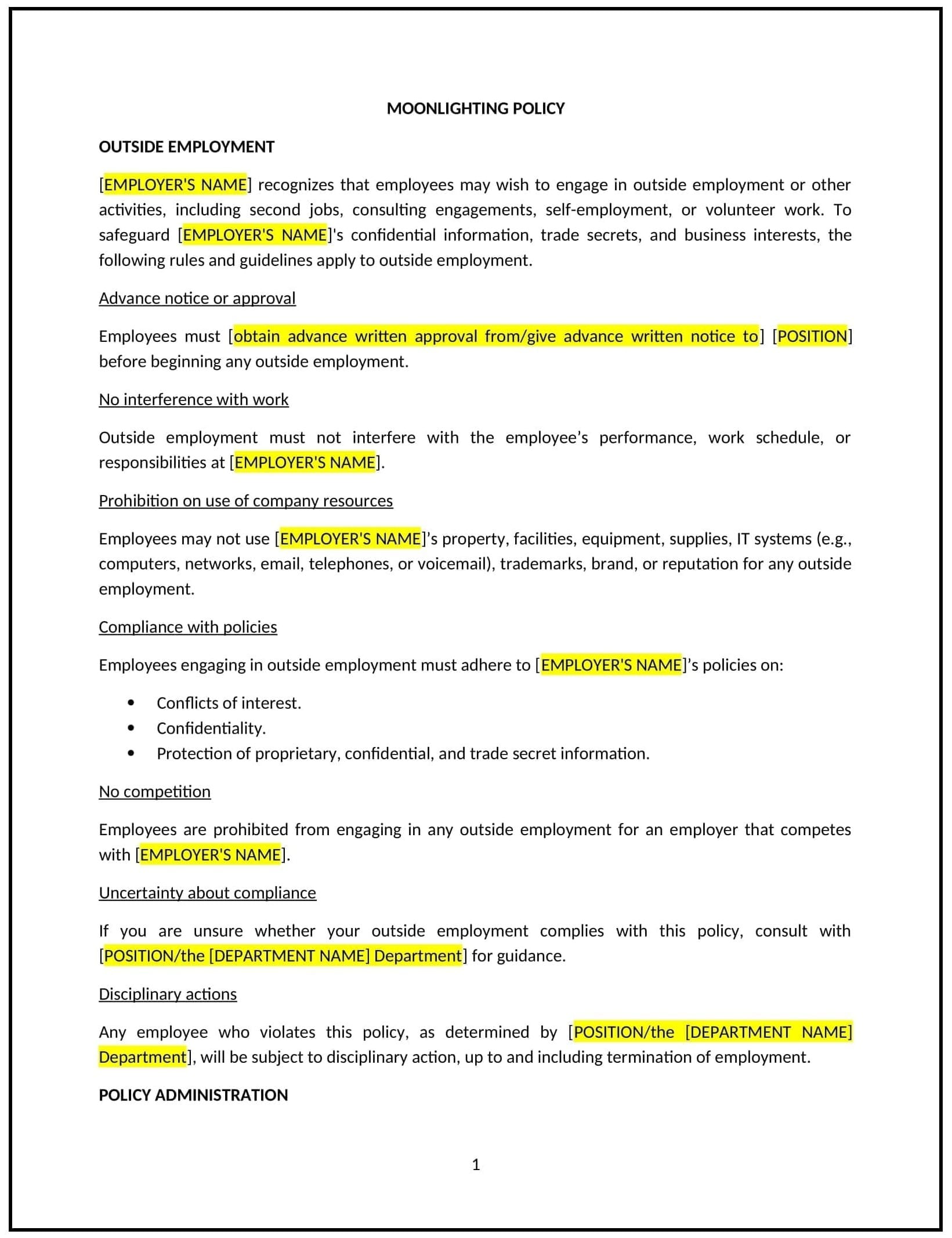Got contracts to review? While you're here for policies, let Cobrief make contract review effortless—start your free review now.

Customize this template for free
Moonlighting policy (New York)
This moonlighting policy is designed to help New York businesses establish clear guidelines for employees who engage in secondary employment or personal projects outside their primary job. Whether businesses aim to protect proprietary information, avoid conflicts of interest, or ensure employee performance, this template provides a structured approach to managing moonlighting situations.
By adopting this template, businesses can minimize risks, maintain workplace productivity, and support employees with transparency and fairness.
How to use this moonlighting policy (New York)
- Define the scope: Specify the types of secondary employment or activities covered under the policy, including freelance work, part-time jobs, and consulting roles.
- Address conflicts of interest: Outline situations where outside work may create conflicts, such as competing with the business or using company resources for personal gain.
- Set performance expectations: Emphasize that moonlighting must not interfere with the employee’s ability to meet performance and attendance standards in their primary role.
- Clarify disclosure requirements: Provide instructions for employees to disclose outside work, including approval processes and necessary documentation.
- Include confidentiality provisions: Reinforce the importance of protecting proprietary information, trade secrets, and other sensitive business data.
Benefits of using a moonlighting policy (New York)
This policy offers several benefits for New York businesses:
- Reduces conflicts of interest: Clear guidelines help employees understand and avoid activities that may conflict with the business’s interests.
- Protects proprietary information: Reinforcing confidentiality ensures sensitive data is safeguarded against misuse.
- Maintains productivity: Setting performance expectations ensures that secondary work does not impact employees’ primary job responsibilities.
- Encourages transparency: A disclosure process promotes open communication between employees and the business.
- Mitigates risks: Proactively addressing moonlighting concerns minimizes potential legal or operational disruptions.
Tips for using this moonlighting policy (New York)
- Communicate openly: Share the policy with employees through onboarding materials and employee handbooks to ensure understanding.
- Monitor for conflicts: Regularly review disclosures of secondary employment to identify and address potential conflicts of interest.
- Offer clear examples: Provide scenarios to help employees understand permissible and impermissible types of secondary work.
- Enforce consistently: Apply the policy fairly across all employees to promote trust and avoid perceptions of favoritism.
- Update regularly: Revise the policy as needed to address changes in workplace practices, industry norms, or legal requirements.